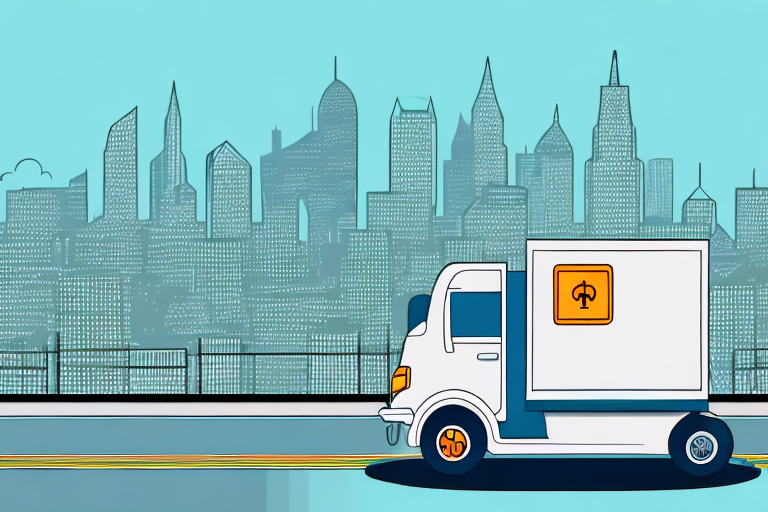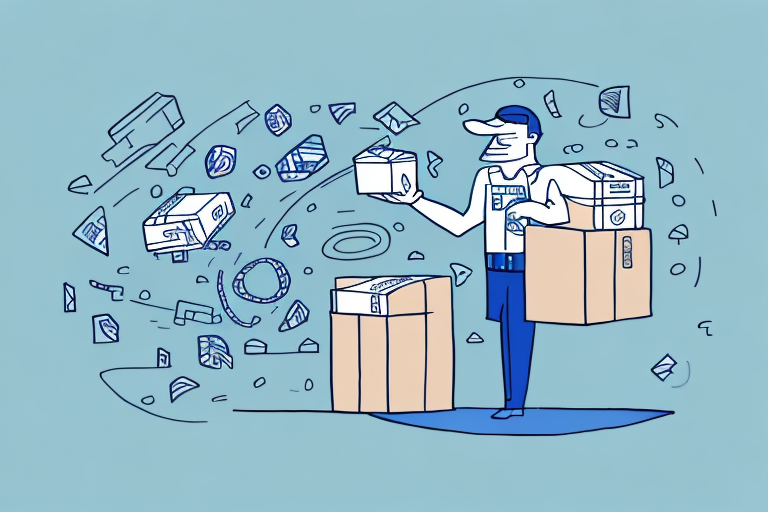Finding the Right Courier Contractor Job for You
If you're considering a career as a courier contractor, it's essential to understand the role's responsibilities and how to secure an opportunity that aligns with your interests and skills. As an independent contractor, you'll manage your own schedule, resources, and finances, offering both rewards and challenges. This guide provides comprehensive information to help you find and excel in a courier contractor position.
The Benefits of Working as a Courier Contractor
Choosing to work as a courier contractor comes with numerous advantages:
- Flexibility: Set your own schedule to balance work with personal commitments.
- Autonomy: Be your own boss and control your work environment.
- Income Potential: Earn based on performance, with opportunities for higher earnings compared to traditional employment.
- Diverse Opportunities: Work with various clients across industries such as healthcare, retail, and logistics.
- Physical Activity: Stay active through walking or cycling during deliveries, promoting a healthy lifestyle.
- Satisfaction: Delivering important packages provides a sense of fulfillment and contributes to clients' success.
According to the U.S. Bureau of Labor Statistics, the demand for delivery drivers is expected to grow significantly, reflecting the increasing reliance on courier services in the digital age.
Essential Skills and Qualifications for Courier Contractors
Key Skills
- Time Management: Efficiently manage your schedule to meet delivery deadlines.
- Reliability: Dependable in fulfilling commitments and maintaining consistent performance.
- Communication: Effectively interact with clients, vendors, and team members.
- Navigation: Strong sense of direction and familiarity with local areas to ensure timely deliveries.
- Vehicle Maintenance: Basic knowledge to perform minor repairs and troubleshoot issues.
- Adaptability: Ability to handle last-minute changes and work under pressure.
Qualifications
While formal education may not be mandatory, having relevant certifications or licenses can enhance your prospects. Additionally, owning a reliable vehicle and having access to GPS navigation are typically required.
Types of Courier Contractor Jobs Available
The courier industry offers a variety of roles tailored to different needs and specialties:
- Same-Day Delivery: Deliver goods within a local area on tight timelines, ideal for urgent shipments.
- Specialized Deliveries: Focus on specific types of items such as medical supplies, electronics, or hazardous materials.
- Long-Distance Deliveries: Transport goods across regions or internationally, requiring excellent driving skills and knowledge of regulations.
- Freight Delivery: Handle larger shipments, often involving vans or trucks, suitable for those with experience in logistics.
Each type of courier role comes with its own set of requirements and challenges, so it's important to choose one that matches your skills and interests.
How to Find and Apply for Courier Contractor Jobs Near You
Job Search Strategies
- Online Job Boards: Utilize platforms like Indeed, LinkedIn Jobs, and specialized courier websites.
- Local Staffing Agencies: Reach out to agencies that specialize in transportation and logistics placements.
- Job Fairs: Attend industry-specific job fairs to connect directly with potential employers.
- Direct Inquiries: Contact companies directly to inquire about independent contractor opportunities.
Application Tips
When applying, be prepared to provide detailed information about your experience, availability, and any relevant certifications or licenses. Highlight your reliability, time management skills, and familiarity with the local area.
Ensure you have the necessary equipment, such as a reliable vehicle, GPS navigation, and a smartphone for communication and tracking. Some positions may require specific types of vehicles, like vans or trucks, depending on the delivery needs.
Managing Your Business as an Independent Courier Contractor
Business Setup
- Business Structure: Decide whether to operate as a sole proprietorship, LLC, or other business entity.
- Licensing and Insurance: Obtain necessary licenses and insurance to protect your business and comply with regulations.
Financial Management
- Record Keeping: Maintain detailed records of income and expenses for tax purposes and financial planning.
- Tax Planning: Set aside funds for taxes and consider consulting with a tax professional.
- Cost Management: Identify opportunities for reducing expenses and increasing revenue.
Marketing and Networking
- Online Presence: Create a professional website and utilize social media to attract clients.
- Networking: Build relationships with other professionals in the industry to gain referrals and insights.
- Continuous Learning: Stay updated with industry trends and invest in training to enhance your skills.
Standing Out as a Top-Performing Courier Contractor
Customer Service Excellence
- Timeliness: Consistently meet delivery deadlines to build trust with clients.
- Communication: Keep clients informed about delivery status and promptly address any issues.
- Reliability: Ensure your vehicle is well-maintained and properly equipped for deliveries.
Flexibility and Adaptability
Being able to accommodate last-minute changes or urgent requests can significantly enhance client satisfaction. Stay adaptable to varying delivery requirements and maintain a positive attitude.
Embracing Technology
Leverage the latest delivery and navigation technologies to streamline operations and improve efficiency. Using advanced tracking systems and mobile apps can enhance your service quality.
Advantages and Disadvantages of Being a Self-Employed Courier
Advantages
- Flexible Schedule: Control your work hours to suit your lifestyle.
- Higher Earnings Potential: Ability to earn more based on the volume and efficiency of your deliveries.
- Client Choice: Select clients and delivery types that match your preferences and expertise.
Disadvantages
- Income Instability: Earnings can fluctuate based on demand and client availability.
- Self-Employment Costs: Responsible for purchasing and maintaining your own equipment and securing insurance.
- Job Security: Lack of guaranteed income and benefits compared to traditional employment.
Balancing these pros and cons is crucial for long-term success and satisfaction as a self-employed courier.
Balancing Workload and Managing Finances
Workload Management
- Prioritization: Organize tasks based on deadlines and importance to ensure efficient delivery.
- Time Management Tools: Utilize calendars, task lists, and scheduling apps to stay organized.
- Self-Care: Schedule regular breaks and maintain a healthy work-life balance to prevent burnout.
Financial Management
- Budgeting: Create a budget to manage expenses and ensure profitability.
- Accounting Software: Use tools like QuickBooks or Wave for efficient financial tracking.
- Financial Planning: Invest in financial advice or resources to optimize your earnings and manage taxes effectively.
Staying Safe on the Job: Best Practices for Couriers
- Vehicle Maintenance: Regularly inspect and maintain your vehicle to prevent breakdowns and accidents.
- Follow Traffic Laws: Adhere to all traffic regulations to ensure your safety and that of others.
- Protective Gear: Wear appropriate safety equipment, such as reflective clothing or gloves, when necessary.
- Awareness: Stay vigilant of your surroundings to protect yourself and your cargo from potential risks like theft or injury.
- Emergency Preparedness: Have a plan in place for emergencies, including first aid kits and emergency contact information.
The Future of Courier Work: Trends and Predictions
The courier industry is evolving rapidly, influenced by technological advancements and changing consumer behaviors. Key trends include:
- Automation and Robotics: Increasing use of automated delivery systems and drones to enhance efficiency.
- E-commerce Growth: Continued expansion of online shopping driving demand for reliable delivery services.
- Sustainability: Emphasis on eco-friendly practices, such as electric vehicles and green packaging.
- Advanced Tracking: Implementation of sophisticated tracking technologies for better delivery management.
- Personalization: Customized delivery solutions tailored to individual client needs.
Staying informed about these trends and adapting your business strategies accordingly will be crucial for maintaining a competitive edge in the courier industry.
By leveraging the insights and strategies outlined above, you can successfully find and thrive in a courier contractor role that suits your skills and aspirations. Focus on building a strong reputation, managing your business effectively, and staying ahead of industry trends to ensure long-term success in this dynamic field.




















